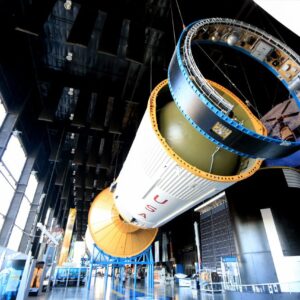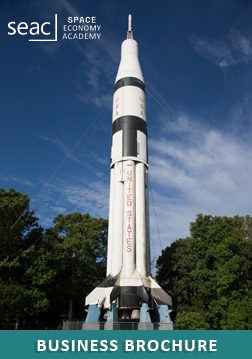Space project management Branch describes the Key elements of project planning and implementation and identifies the top level requirement and products that together provide a coherent and integrated project planning across the tree ECSS branches.
The ECSS standards are a set of standards aimed at harmonising the methods used and the processes followed across all European activities in the space sector.
The Initiative:
ECSS stands for European Cooperation for Space Standardization, which is the initiative that is in charge of developing, implementing and maintaining the standards. The active support for ECSS comes from several agencies and companies, including the European Space Agency and various national space organizations (Italian, French, German, UK, Dutch, and Norwegian space agencies/offices).
The Canadian space agency is also an Associate Member of ECSS. On the industry side, the industry is represented by Eurospace, which is the trade association of the European Space Industry. Finally, there exist observers which provide recommendations and expertise feedback. Currently the entities that play the role of observers are the European Committee for Electrotechnical Standardization (CENELEC), the European Organisation for the Exploitation of Meteorological Satellites (EUMETSAT), the European Commission (EC), and the Europe Defense Agency (EDA) (ECSS Members, 2021).
The Scope
In 1993, the initiative was established to address the European industry’s challenges arising from diverse standards and requirements in space institutions. Subsequently, W. Kriedte requested standardization of product assurance requirements, officially received by Eurospace, ESA, and CNES in 1995.
The primary objectives of ECSS encompass enhancing the competitiveness of the European space sector, increasing cost-effectiveness, improving project quality and safety, and facilitating sector-wide communication. To achieve these goals, ECSS provides a comprehensive set of documents and standards that reflect user needs, feedback, state-of-the-art technology, and best practices.
The Classification
Space project management; the standards of the ECSS system cover four main topics and are therefore classified into four main groups, namely:
- The Engineering standards (identified by the letter E)
- The Management standards (identified by the letter M)
- The Product Assurance standards (identified by the letter Q)
- The Sustainability standards (identified by the letter U)
The ECSS document tree (ECSS Document Tree and Status, 2021) comprises groups representing branches, and each branch further divides into disciplines.
Besides the four core branches mentioned above, the ECSS system includes:
- ECSS General and System documents (identified by the letter S)
- ECSS Policy documents (identified by the letter P)
- ECSS Configuration and Information Management documents (identified by the letter D)
Conclusion:
By ECSS standards, space agencies and organizations can harmonize their approaches, promoting cooperation and interoperability across international boundaries. These standards cover various aspects of space project management, such as system engineering, quality assurance, testing, and verification. They aim to enhance project efficiency and reduce risks.
Documents serve as the backbone of space project management, providing a clear roadmap and reference for the entire project team. Proper documentation ensures transparency, traceability, and facilitates knowledge transfer throughout the project lifecycle. It also creates a valuable resource for future missions and fosters a culture of continuous improvement.
The significance of adhering to ECSS standards and maintaining comprehensive documentation throughout space projects has been explored. Moreover, staying updated with standards and refining project management are crucial for space exploration’s success. Additionally, stakeholders must commit to excellence and collaboration in this exciting era of pushing boundaries in space exploration.
Space Project Management is complex and demanding, needing meticulous planning, strict adherence to standards, and comprehensive documentation. The European Cooperation for Space Standardization plays a pivotal role in best practices for effective space project management.
Author: Elena Galletti
- ECSS Document Tree and Status. (2021). Retrieved from ECSS Official Website: https://ecss.nl/standards/ecss-document-tree-and-status/
- ECSS Members. (2021). Retrieved from ECSS Official Website: https://ecss.nl/organization/members/
- ECSS-P-00C. (2013, 03 22). Retrieved from ECSS Official Website: https://ecss.nl/standard/ecss-p-00c-standardization-objectives-policies-and-organization-22march2013/
- Kriedte, Y. E. (1995). A New Approach to European Standards. Retrieved from ESA Bulletin: https://www.esa.int/esapub/bulletin/bullet81/krie81.htm





